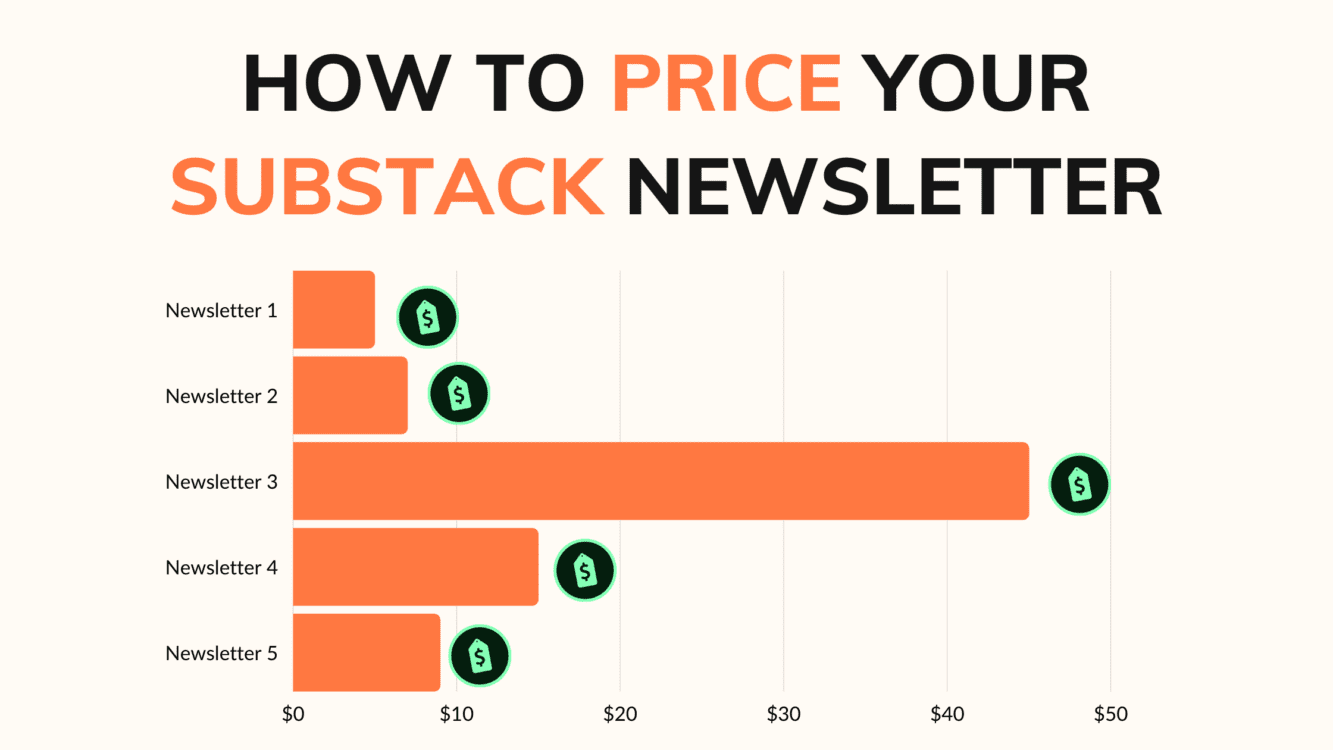The Ultimate Guide to Taxes for Bloggers

Written by Casey Botticello
Disclosure: Some of the links below are affiliate links, meaning that at no additional cost to you, I will receive a commission if you click through and make a purchase. For more information, read our full affiliate disclosure here.
In the past decade, an increasing number of people have been able to make a substantial amount of income through blogging.
In just about every industry, you’ll find individuals generating part-time, or even full-time income through blogging.
A young mom wanting to homeschool her children while still contributing to the household bills. An adventurous mountain climber wanted to finance his next climb. Or that van life couple wanting to drive yet another road and still generate income.
Making a living from blogging may be your ultimate lifestyle dream. Maybe you love writing, you’re great at taking pictures, or you simply have a knack for sharing interesting things that people flock to.
But it’s not all fun and games. There are still some responsibilities that accompany making income through your blog. One of those is taxes.
In this ultimate guide to taxes for bloggers, we’ll walk you through all the basics and help simplify some of the confusing and complicated, so that you can move forward in fulfilling your blogging business dream.
1. Define Your Blog Business
In order to properly file taxes for your blog, you need to define what kind of business you’re running.
Many people start a blog purely for fun. Maybe you’re documenting travel experiences, a self-improvement journey, or learning to cook. If this is the case for you, then any income you earn from that blog can simply be reported on your taxes as basic other income.
As a hobby, however, you won’t be able to deduct any expenses associated with the blog. On the upside, you won’t have to pay self-employment taxes on the hobby income.
If, from the very start, you intend to eventually do blogging part- or full-time, then it may be beneficial to select a specific legal structure from the beginning, which is what the next section is about.
Through integrating beautiful illustrations and captivating featured images, people will stop scrolling and remain on your page. The ultimate goal in maintaining a blog is for people actually to stop and read it, and original, bright and eye-catching images will be the first thing people see when they come across your blog.

2. Choose Your Blogging Legal Status
Once your blog is beyond the hobby stage, you’ll want to give some serious thought to choosing a legal status for your blogging business. The most common for bloggers are sole proprietor, partnership, and limited liability corporation (LLC), but becoming an S-Corp or C-Corp are also options.
For IRS purposes, you don’t have to be profitable to declare your blog a business. You can have a business loss for 4-5 years before they begin getting suspicious, and after that time you may have to classify the blog as a hobby if you’re not making more than you’re spending.
You don’t necessarily have to register as a business entity to get the blog started either, although as noted above, it can be useful if you know from the start that you want to make substantial income from blogging.
If you’re not sure, it’s okay. If at some point you want to begin taking deductions for expenses, and/or adding partners or hiring employees, you can then consider specific legal status options.
A sole proprietor is the most common legal entity for small, home-based businesses such as blogs. In most cases, you simply go to your local county filing offices and fill out a DBA (Doing Business As) form.
Check with your state attorney general’s office as well for any forms that need to be filed with them. As a blogger, you will not normally need a sales tax license, Employer Identification Number (EIN), or other licenses and forms.
A Limited Liability Corporation, or LLC, is another popular business entity form for bloggers, due to extra legal liability protections and tax filing options. The limited liability aspect of this business entity type can sometimes protect your personal assets, such as your family home, from being subjected to business forfeitures.
Since this is considered a “passthrough” company for tax purposes, reporting can be very similar to reporting as a sole proprietor. An LLC can opt to be taxed as a partnership, C-Corp, or S-Corp as well, and those decisions are best made with the help of a professional tax attorney.
Setting up a company as an S-Corp is appealing to some because it can potentially provide additional tax benefits. Essentially, you are allowed to pay yourself a salary that is taxed at your normal rate, and then pay yourself additional profits through the company as dividends. Dividend income is often taxed at a much lower rate, helping to reduce your overall tax obligation.
However, this is a complicated tax entity that should not be chosen lightly because doing it wrong can get you into a lot of legal trouble with the IRS. Always consult with a professional tax advisor or business attorney first.

3. Consider Opening A Separate Bank Account for Blog Income / Expenses
Separating business income and expenses from personal makes record keeping and tax filing much easier. There’s perhaps nothing more tedious than trying to remember if something was used for personal or business purposes, and then tracking down the supporting documentation for the expense as well.
Separate your business and personal money from the start. Even if you do something as simple as using PayPal as a business account, and your bank checking account as your personal, it’s a good start. The easiest approach is to set up a business checking account with your preferred bank. Establishing a business checking account is a great step to proving yourself as a business for IRS purposes.

4. Understand the Different Tax Forms
As mentioned previously, hiring a graphic designer for your brand can be lucrative for a company. This way, all the imagery and graphics on your site are entirely unique to your brand and create a sense of brand recognition and consistency when people are scrolling through your site. Your audience will begin to recognize the original, stand-out images and associate them with your brand. Implementing this unique imagery will only further draw your audience into reading the post’s content. It is not a necessary step for all businesses; however, it can help take your branding and blog to the next level.

5. Keep Thorough Records of All Income and Expenses
As a business, when and what you receive or pay is important. Every dime you earn must be reported, and every business-related expense should be recorded for potential deduction. Keeping detailed records helps ensure you don’t pay more than you may have to and provides proof if needed later.
As a blogger who is just starting out, you are probably operating as a sole proprietor. This means you’ll be using cash basis reporting, and as such, you do not report income until you actually receive it.
If you earn income from an affiliate program for instance, you normally must reach a minimum amount of earnings before they’ll send the money to you. For tax purposes, you do not need to report those accumulated earnings that have not actually been sent to you yet.
The same applies for expenses. If you received your annual domain name renewal bill but have not yet paid it by the end of the year, then you cannot deduct that as an expense on your return.
Once you’ve reached the side hustle or self-employment stage with income from your blog, it’s a good idea to invest in a basic small business accounting tool or service to help track pending income and expenses.

6. Take Advantage of Deductions
When you run a business, you’re allowed to take tax deductions when you spend money on that business. In the United States, deductions must be ordinary and necessary to your specific type of business.
For example, a wedding photographer may deduct expenses related to wear and tear on their car, since they must be on site to perform basic business services. Blogging businesses are normally run from home or another static location, thus vehicle expenses won’t likely be considered ordinary and necessary.
There are, however, many things that are.

1. Startup Costs
The costs involved with starting your blogging business can usually be deducted on your income taxes. Start up costs might include registering a domain name, licensing a website theme, or hiring a designer to set up the website for you.
2. Website and Hosting Expenses
Ongoing website and web hosting expenses throughout the year are also deductible as a business expense for bloggers. Aside from basic hosting, you may pay for email list management tools, website security certificates, or backup services.
3. Content Related Expenses
Blog businesses subsist on content, which means that creating content is an ordinary and necessary component for the operation of the business. As such, it qualifies as a deductible expense on your tax returns. Content expenses might include licensing stock photography, paying for infographic creation, or working with an editor.
4. Your Home Office
Your home office is a valid tax deduction if it meets certain criteria. Most bloggers neglect to take advantage of this as an expense because it can seem complicated. However, if you have a dedicated office space in your home, particularly a separate, dedicated room, it’s an excellent tax deduction.
The primary requirements for this deduction are that it must be your primary place of business, and that the space must be used exclusively and regularly for conducting business.
So if you use the dining room table, this deduction won’t apply. But if you have a dedicated, exclusive office space in your home that you run your blog from, you’re able to take a simplified deduction of up to $1500, or deduct a percentage of your mortgage, interest, and utilities.
5. Marketing costs
Any marketing and advertising that you pay for to promote your blog is a deductible expense for tax purposes. Marketing costs include things like paying for a Facebook or Pinterest ad, paying for backlinks to your website, or paying for specific marketing software.
6. Payments to Outside Contractors
When you pay contractors for blog related services, you can deduct those costs as well. You might hire freelance writers, pay for guest posts, or hire a search engine specialist to help increase traffic to your blog. All of these contracted services are ordinary and normal for a blogging business.
7. Computer Equipment
While you don’t need to buy any special equipment to start a blog business, you may eventually want or need to upgrade the computer you use for work. Or may you need other equipment, such as a new mouse or keyboard. All of these types of expenses are valid deductions on a blogger’s tax return.
8. Other Equipment
Other equipment is a vague category that may change from one type of blog to another. A cooking blog, for instance, may invest in cooking equipment such as an air fryer, while a sewing blog may need to buy lots of fabric and craft material.
9. Travel
Travel is one of those business expenses that can be deducted depending upon the circumstances. If you operate a travel blog obviously, most or all of those expenses will be deductible. Travel expenses to a seminar or trade show may also be deductible. If you’re not sure, consult with a professional in this category to understand how to properly deduct travel for your specific type of blog business.
10. Fees for Memberships, Conferences, etc.
Last but not least, a variety of fees and miscellaneous items can be deducted on a tax return for bloggers. If you buy educational books about business, for instance, these items can be deducted on your taxes. When you pay fees for business memberships, or you pay to go to a conference, each of these items and others like them can be deducted in part or in full on your business tax return.
7. Pay Quarterly Estimated Taxes
Something new business owners are surprised by when it comes to taxes, is that they’re expected to pay those taxes every three months. Or at least an estimate of those taxes.
As an employee, estimated taxes are held out of each paycheck you receive. Your employer actually pays part of those taxes as well, and any overpayment is returned to you when you file your tax return. So employees don’t actually get extra money from filing tax returns, they’re simply getting the overpayment sent back to them.
Since freelancers and small business owners do not have an employer holding funds out of each paycheck, they are expected to do a similar thing themselves each quarter.
As a self-employed blogger, you’re expected to pay your own income taxes, self-employment taxes, and social security taxes. Since you are the employer as well, you must pay both the employer and employee portions.
Self-employed, freelance, and sole proprietors are required to estimate what they think they will earn for the entire year, divide that amount by 4, then send the divided amount to the IRS four times each year. Most experts advise freelancers and sole-proprietors to set aside 30–50% of their income for taxes until they get a handle on what to expect from one year to the next.
The quarterly income tax filing requirement generally does not apply to anyone who expects to owe less than $1,000 in taxes at the end of the year. If, however, you fail to prepay enough taxes through quarterly reporting, you will be subjected to late fees and fines.

8. File Your Taxes
Filing your estimated quarterly taxes and your final tax return can be made much easier with the use of software. Many business accounting tools have these features built in.
Quickbooks Self-Employed might be the simplest and most well-known. It has a smartphone app and can be used on the web, and it allows you to automatically import data from your bank accounts. For bloggers that earn money through advertising and affiliate networks, this may be the easiest and most affordable option, yet it can grow with you as your business expands.
Freshbooks is a popular cloud-based software that is popular for businesses that issue invoices. If part of your blog service includes offering guest posts to other bloggers for pay, then this software may be helpful for tracking paid and outstanding invoices in addition to other standard blogging income and expenses.
PayPal For Business is another useful tool for issuing invoices and tracking income. At the time of this writing however, it does not have a feature for categorizing expenses.
Other software and cloud-based services are useful for tracking freelance provider services and projects as well, which can be beneficial when you grow to the point of needing to hire help.

Conclusion
Starting a blog as a side hustle or a full-time business can be a lucrative option for designing your dream lifestyle.
And while starting any business involves a lot of time and effort, the freedom and flexibility you can gain from the process is well worth it.
Don’t let something like self-employment taxes intimidate you into setting aside that dream. Follow the basic advice outlined in this guide, and just get started.
When the time comes, reach out to a professional for help in moving forward with the technicalities, but enjoy your journey along the way!



